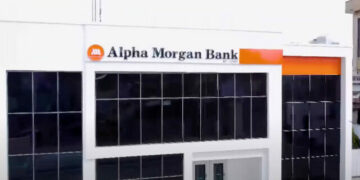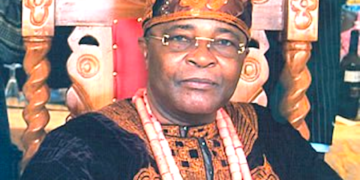Over 500,000 conflict-affected people will benefit from a new humanitarian and development package aimed at enhancing peace, increasing livelihood opportunities and providing education, health, nutrition, child protection, and sanitation support to strengthen the resilience of vulnerable populations in Borno and Yobe States.
Funded by the German Ministry of Economic Cooperation and Development through German Development Bank, KfW, children from zero to 23 months, pregnant women, school-age children, adolescent girls, female-headed households, and people with disability will be targeted under the Resilience and Social Cohesion Project to be implemented for three years by the World Food Programme (WFP) and UNICEF.
In a statement issued yesterday in Abuja by WFP, it said the multi-year project would leverage ongoing humanitarian support in Bade local government area of Yobe State and Shani council of Borno State, while also providing multisectoral interventions to address drivers of conflict and fragility. The project will support the strengthening of local governance structures to promote social cohesion through community-based processes and the capacity building of government partners.
Now in its thirteenth year, armed conflict in north-east Nigeria has levelled communities, destroyed livelihoods, and disrupted essential services for children and adults. Protracted insecurity, high food prices and COVID-19 lockdowns have put more than 4 million people in need of food assistance. The situation is further exacerbated by a severe impact of violence and unrest on family income, mental health, nutrition, education and other child protection concerns. Across the region, 1.14 million children are acutely malnourished at a scale not seen since 2018.
WFP said, “This is a pathway to peace and sustainable development,’’ said Peter Hawkins, UNICEF Representative in Nigeria. Children and other vulnerable groups will have a lifeline, and an opportunity to survive and thrive in communities where livelihood and peace building activities are present’’.
“Conflict in any region is potential instability in the rest of the world. UNICEF is grateful to the German Government for supporting pathways to child survival and peace in north-east Nigeria,’’ said Peter Hawkins.
The Resilience and Social Cohesion programme will contribute to seven Sustainable Development Goals (SDGs) of poverty eradication, zero hunger, access to quality education, gender equality, good health and wellbeing, climate action, peace, justice and strong institutions as well as partnership for goals.
The new programme will focus on peace building, governance capacity strengthening, sustainable livelihood creation, restoration of infrastructures, and provision of life-saving services to 156,888 direct beneficiaries and 362,307 indirect beneficiaries in both LGAs.
“WFP welcomes this timely and generous support from the Government and people of Germany. This project will support people and communities facing the peril of conflict and hunger in northeast Nigeria, especially in Borno and Yobe states,” said Ms. Simone Parchment, Deputy Country Director and Officer in Charge, the World Food Programme Country Office, Nigeria.
“In these affected states, persistent conflict, climate shocks, high food prices and reduced household purchasing power undermine people’s ability to feed themselves and sustain their livelihoods. This contribution from the government of Germany will go a long way in building resilience, social cohesion and peace in the affected communities”.





